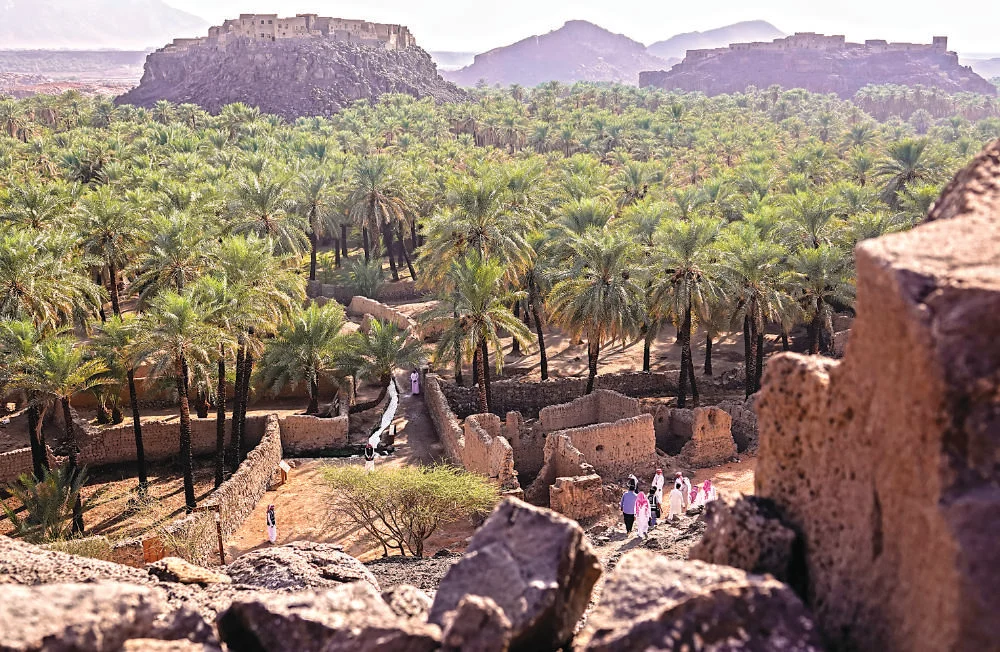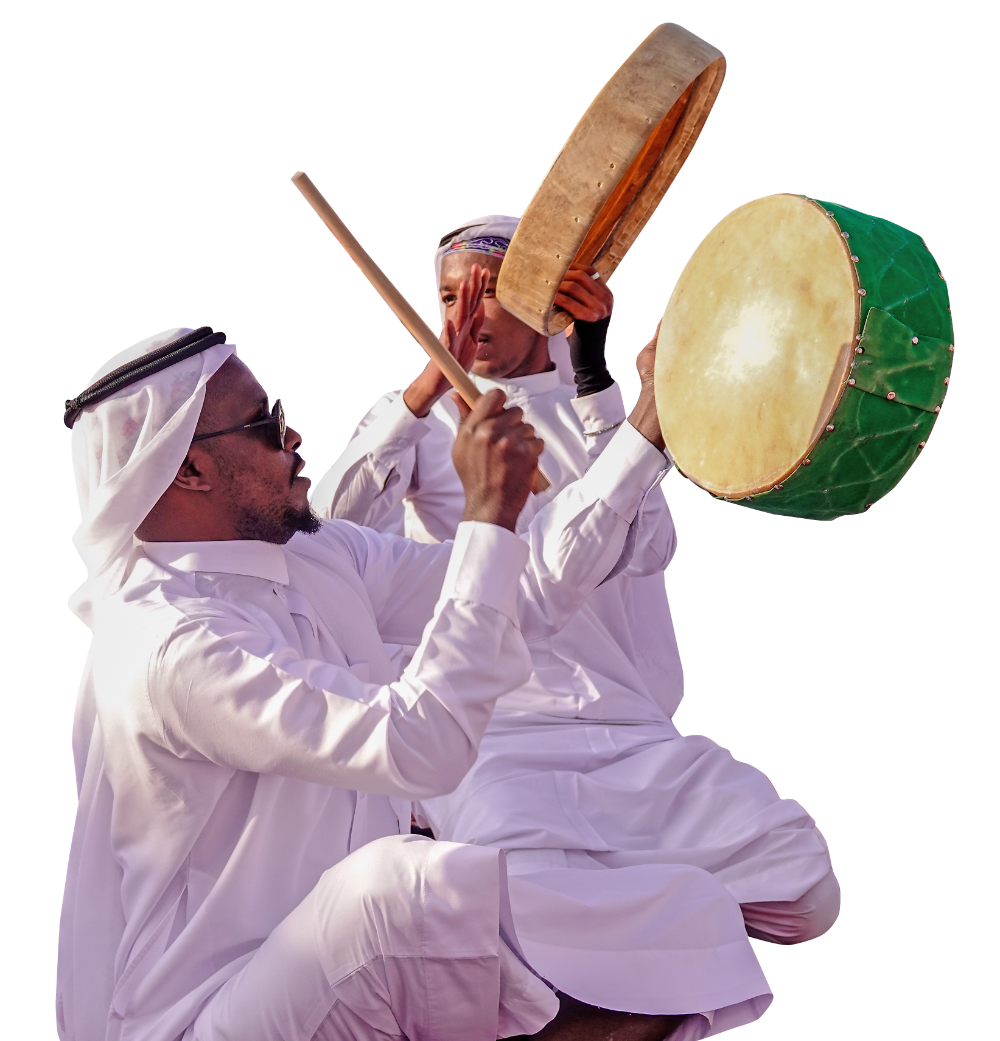KHAYBAR: Past, present and future came together as the inaugural Ancient Kingdoms Festival drew to a close with a series of dramatic events showcasing three historic oases of the northwest — AlUla, Khaybar and Tayma — for a modern audience.
The festival, launched on Nov. 11, was the first of its kind to focus entirely on the sites, which were at the crossroads of culture in ancient times, and also centers of influence and wealth.
By focusing on a range of events, including cultural performances, workshops and sightseeing opportunities, the festival gave these ancient landscapes a new lease of life, with many of the activities expected to continue after the festival’s close.
A spectacular show lit up the night sky as 1,450 drones formed shapes while an orchestra played music by UK composer Matt Faddy. The show will continue until Dec. 15, 2023.
Visitors to Khaybar can still explore the mysterious prehistoric stone structures on foot, or by car or a 20-minute helicopter excursion, hovering over the old and new.

“We made this festival to reflect the stories behind all the ancient civilizations that lived around or in these three places,” Abdulrazzag Alanzi, a local storyteller and tour guide, told Arab News.
Alanzi used to visit his cousins in Khaybar as a child and still recalls hearing stories about the region going back centuries.
“I used to love reading a lot of fictional stories and also a lot of old stories, and when I heard about something that happened in this area many years ago, it always fascinated me. This is what pushed me into this line of work, tourism,” he said.
“AlUla, Khaybar and Tayma have a lot of historical stories and a lot of information that we need to show the world.”

Fahad Aljuhani, a storyteller who describes the area as the “greatest living museum,” also came to the area as a child to connect with his cousins — and to discover hidden treasures.
“I’m a ‘Rawi’ and ‘Rawi’ in English means a storyteller. Now we are on an island that floats on a sea of rock which is Khaybar. I used to come to Khaybar and visit my relatives, and they would tell us a story about the tombs and the oasis, and I didn’t have the chance to visit them until now,” he told Arab News.
Aljuhani said that 5 million years ago, hundreds of volcanic eruptions occurred simultaneously in the area.
“If you feel the rocks, they seem to generate heat from within, similar to those who choose to watch over the land today and tell its many-layered stories,” he said.
Tour guide Enass Al-Sherrif told Arab News that she is excited to see people, including those from around the Kingdom, taking the time to learn about their past.
Al-Sherrif describes her job as the best she could ever have.
“I am really proud and honored. And I want to show you and make you feel the experience, how we transformed this place into an amazing destination for others to come and visit us,” she said.
The festival and its extended program aims to shed light on the legends and legacies of ancient times in the Kingdom’s northwest region, allowing visitors to explore and learn about the “largest living museum in the world.”
It is two years since AlUla began reopening heritage sites to domestic and international tourists with its pioneering Winter at Tantora program, which lasts until March.
While the Ancient Kingdoms Festival wrapped up on a chilly day on Nov. 27, many of the visitor experiences will continue well beyond the festival period, with some available year-round.
“The northwest Arabian Peninsula is the jewel in the heritage crown of the Kingdom of Saudi Arabia and a source of fascination for a global community of archaeologists and researchers. Their discoveries shed new light on the societies that endowed the region with such relics of the ancients, preserved in wonders of prehistoric geology, art, and historical architecture that reveal important truths,” the Royal Commission for AlUla, which hosted the event, said in a statement.
The commission plans to host the Ancient Kingdoms Festival annually. Further details are available on its website.





























